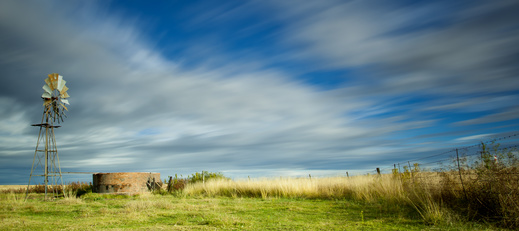
Like most developing countries in the world, Sub-Saharan African (SSA) countries can present some challenges for promoting businesses such as remote grids. Project cost structures and expenditure patterns that are viable in other regions (developed countries) will not apply directly in SSA – a manifestation of some generic developmental challenges.
Nigeria and other countries in Sub-Saharan Africa have power sectors dominated by main grid electricity supply that serves as the primary source of electricity for many households and organizations (in addition to captive power produced with generators sets). These main grid systems constitute a monopolistic behemoth, in many instances, as they are either owned by the state, recently privatized or still in the process. Those companies maintain distinct advantages such as outright monopolies or an unhealthy market dominance, stifling off-grid and remote grid solutions. Only recently are new laws being made that favor competition between main grid and remote grid sources. Old laws are also being reworked across several markets, including Kenya and South Africa, to accommodate modern trends and diverse energy generation models.
In Nigeria for example, very low generated supply means many industrial hubs and manufacturing centers are severely lacking in much-needed power. Operators now resort to self-generation, a solution that is far less cost-effective than commercial remote grid solutions. These new solutions can be tailored to meet the power demand of industrial hubs and clusters such as mines, consumer goods manufacturing corridors and educational institutions. However, profitability and commercial viability is not a given with remote grids. Project concept, development, and ongoing operation must combine a number of elements to lower the risk of failure. Remote grid projects and their promoters in SSA should have diverse and healthy linkages with numerous factors to validate their viability.
Understanding the stakes and the stakeholders
Proper collaboration is a necessity in Africa, so understanding what the stakes are and who the stakeholders is therefore critical to success. One major stakeholder is the regulator. Regulatory challenges seem to be the first hurdle in countries such as Nigeria, where the supporting frameworks for remote grids and related solutions are still being developed. Promoters should expect regulatory uncertainties and a lengthy/complex approval process until the new system becomes fully functional and integrated. Political interference is also an expected challenge with historically state-owned power sector systems and assets. The stakes are changing, however, with aggressive privatization and the dominance of numerous private-sector-led financing.
A recurrent model across many promoters’ cases is a detailed stakeholder analysis. With a proper analysis, in which critical players are understood and well-mapped, projects success is all but guaranteed. Whether this or another model is adopted, remote grid projects in Africa should incorporate:
Inclusion. Have a channel that allows the user community to co-own the assets. This co-ownership can be practical or logical (for example, equity stakes, extensive local manpower involvement, or ongoing subcontracts that are primarily executed by and within the communities). The advantages of this form and level of inclusion range from improved commercial patronage to security of the assets. The safety of critical assets can deteriorate as one moves away from the urban areas to rural and remote locations, due to a mosaic of factors such as lower infrastructure, illiteracy within rural and remote communities, and poor rural policing.
Needs and Demand. Project development for commercial purpose should be need-based and demand-driven. The assumption that “grid islands,” manufacturing hubs, mine locations and agricultural processing centers will require remote grid solutions by default could prove tough to commercialize. Decades of poor grid supply in many parts of Africa means many organizations, hubs and communities, and households have devised alternative means of surviving and meeting their energy needs. Until these models – although suboptimal – are strongly challenged, or the users themselves become severely handicapped by the poor energy supply, better systems such as new and remote grid solutions may be viewed with bias and receive limited commercial patronage and support.
Chijioke Mama is a senior energy analyst, strategy consultant, and syndicated columnist. He is one of the leading voices in Africa’s energy discourse, with more than 40 research-based and investment-focused publications on energy matters in Sub-Saharan Africa. His analytical works are syndicated across top business publications in the UK, US, and Africa, with diverse advisory and consulting engagements for energy and infrastructure firms in these regions.
